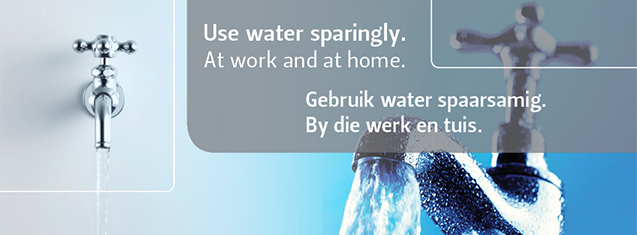Latest News Archive
Please select Category, Year, and then Month to display items
11 January 2021
|
Story André Damons
|
Photo Supplied
 Dr Ralph Clark
Dr Ralph Clark
The Afromontane Research Unit (ARU), the flagship research group of the University of the Free State (UFS) Qwaqwa Campus, has recently been granted R8,4 million to establish a Risk and Vulnerability Science Centre programme.
The Risk and Vulnerability Science Centre (RVSC) programme was established by the Department of Science and Innovation (DSI) as part of the Global Change Research Plan for South Africa and is funded by the DSI through the National Research Foundation (NRF). The RVSC will focus on the need to generate and disseminate knowledge about risk and vulnerability on global change challenges faced by local policy makers/ governance structures and communities in South Africa.
Invited to participate
Dr Ralph Clark, Director of the ARU, says the UFS, together with the University of Zululand and the Sol Plaatje University, has been invited to participate in Phase 2 of the RVSC programme. Dr Clark was approached by the DSI (on referral from the South African Environmental Observation Network – SAEON) in February 2020 regarding the potential for establishing a RVSC at the UFS Qwaqwa campus.
Subsequent interactions were held between the UFS and DSI, and in March 2020, the UFS formally accepted the DSI invitation. It has since been agreed that the RVSC: UFS will be hosted as a RVSC under the ARU umbrella, with dedicated personnel embedded at the UFS in this regard (internal processes and reporting) but reporting directly to the NRF regarding the RVSC.
Interest and support welcomed
Dr Clark welcomed this interest and support from the DSI-NRF, saying that the funds will further assist the UFS in growing its excellent and growing research portfolio and building more research capacity on this traditionally undergraduate-focused campus. “The RVSC will contribute to much-needed solutions in an area marked by major sustainability challenges and will assist in moving Phuthaditjhaba away from its negative apartheid history towards becoming a sustainable African mountain city,” says Dr Clark.
Water use on campus
2015-12-14

Report water wastage on the campuses.
High temperatures and the fact that no rain was falling, puts pressure on the existing water supply. The Free State is one of the most arid areas in the country, and the province was also declared a drought area by the government.
It is therefore very important that the UFS community will use water sparingly – both where you live and in the workplace.
Report water wastage on the campuses by sending an email to news@ufs.ac.za or phone 051 401 3422.
Tips to use water sparingly in the workplace:
- Set up an inventory regarding water use and identifiable water management goals in your department. Control this to indicate progress.
- Keep a bottle of tap water in the fridge to avoid running the tap until the water is cold.
- Fill the kettle with water according to your needs.
- Sweep paving with a broom instead of washing it with water.
- Apply mulch to your garden, as it can reduce water use by up to 70%.
- Don’t rinse glasses and other dishes under running water. Plug the sink and reuse the water in the garden.
- Where possible, recycle water. Support projects making use of recycled water.
- When waiting for hot water to come out of the tap, place a bucket under the tap so that the cold water can be used later.
- Don’t let water run wild. Make sure all taps in the kitchen or bathroom are closed when leaving the office/residence.
Tips to use water sparingly at home:
- Showering can use up to 20 litres of water per minute. Take short showers, less than 5 minutes.
- Turn the tap off between washing your face, brushing your teeth or shaving
- Ensure that you have a full load of washing when using the washing machine.
Source: water tips: Rand Water, Bloem Water.